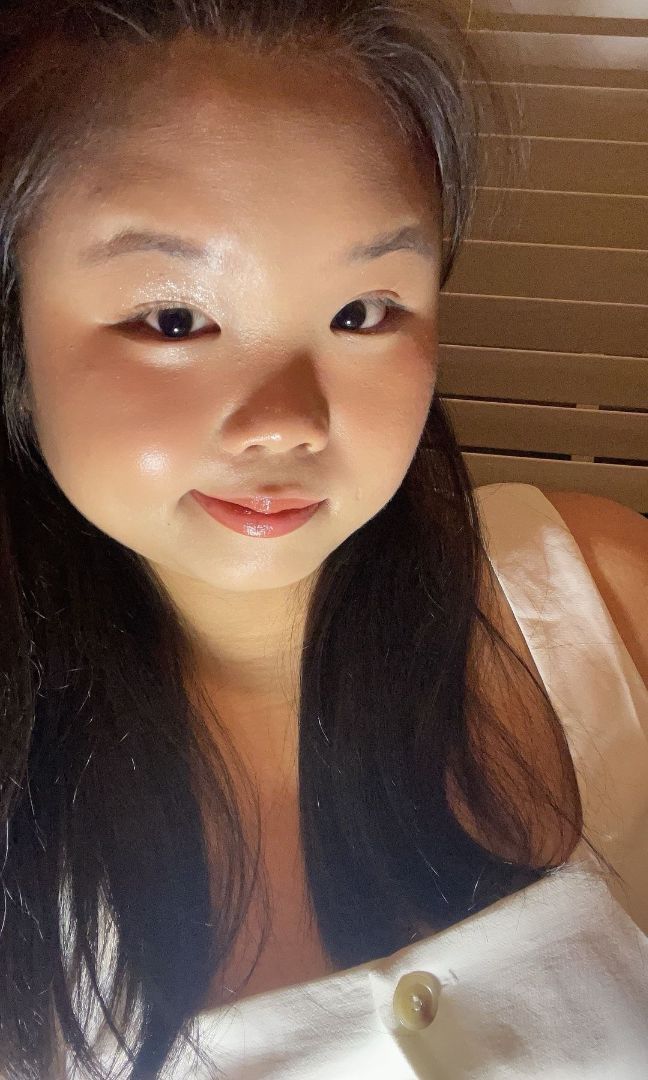This essay was written by Nhi Huynh in response to the 2025 Global Voices Essay Contest. Nhi was awarded first place for this entry.

I stepped off the plane with trembling hands and a suitcase packed more with fear than clothes. My host family stood at the arrival gate holding a sign with my name. They were strangers who smiled warmly, but I could barely return it. My English was shaky. I was afraid of mispronouncing words, of sounding stupid. That night, I sat at the dinner table surrounded by unfamiliar foods, unfamiliar faces, and a thick silence I couldn’t translate away.
At school, things weren’t easier. I was “the quiet Asian girl” in a sea of outgoing American teens. Group work turned into silent guessing games—was I shy, rude, or just slow? I missed my family, my food, my language. I built a wall around myself, convinced that people here wouldn’t understand me, and maybe didn’t want to.
The first crack in that wall came during lunch.
I had packed a lunch box with hot pot that day—rice noodle, egg, and beef. A girl named Ashley, who sat near me in biology class, passed by and peeked at it with curiosity. “That looks amazing,” she said. “What is it?”
I hesitated, but answered. She sat down beside me and asked more questions—not in a performative way, but with genuine interest. I told her about how my family used to make and eat these together cozy and happily. She smiled and shared how her grandmother used to bake her cookies for the same reason. That tiny connection—a stress-relieving meal—was our first shared bridge.
Over time, more bridges formed. Ashley introduced me to her friends, who welcomed me without making me feel like a novelty. They asked about my culture, but never in a condescending way. I learned how to make brownies; they learned how to use chopsticks. We laughed over mispronounced words—mine and theirs. One day, in a moment of bravery, I invited them to my host family’s home to cook "Phở" - one of my country traditional dish. That night, my host mom admitted she had never tasted something so delicious. I think that was the first time I felt truly seen.
But the moment that solidified the power of unity happened months later, when our school held a “Cultural Celebration Night.” I had joined the Environmental Club, and we partnered with other student organizations to host a multi-cultural food table. I brought coconut cookies and coffee cookies, handmade by myself. My friends brought their families’ dishes—Mexican tamales, Korean Tteok-bokki, Brazilian Cheese Bread (Pão de queijo).
It wasn’t just the food that amazed me—it was the atmosphere. Parents and students from all backgrounds came together, complimenting each other’s dishes, sharing stories, exchanging recipes. There was no “us” and “them.” Just “we.” Just people sharing stories and flavors that told them.
What changed everything wasn’t that I suddenly became fluent in English or that I stopped missing home. What changed was that I stopped seeing our differences as walls and started seeing them as doorways.
Building unity doesn’t mean dissolving differences. It means honoring them and reaching through them anyway. The community I found in that Michigan high school wasn’t made of people who looked like me—it was built by people who saw me. Who chose to learn with me, eat with me, and laugh with me, even when the words didn’t always come out right.
Now, when I think of community, I think of Ashley learning how to pronounce “xin chào.” I think of the teacher who stayed after class to help me understand idioms. I think of my host mom asking me for my "Phở" recipe. None of them came from my original “community,” but they became part of it.
I still speak with an accent. I still make cultural missteps. But now, I see those moments not as failures, but as chances to build another bridge—one plate, one word, one story at a time.